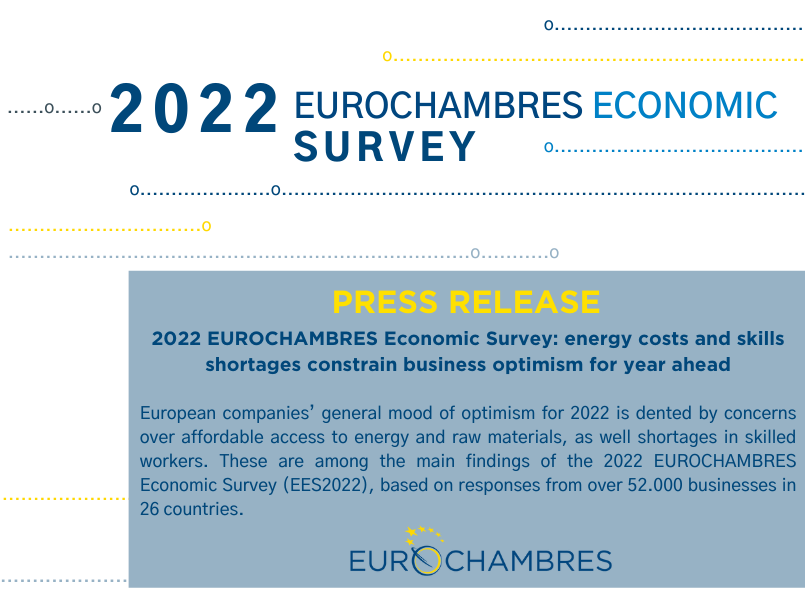2022 EUROCHAMBRES Economic Survey: energy costs and skills shortages constrain business optimism for year ahead
European companies’ general mood of optimism for 2022 is dented by concerns over affordable access to energy and raw materials, as well shortages in skilled workers. These are among the main findings of the 2022 EUROCHAMBRES Economic Survey (EES2022), based on responses from over 52.000 businesses in 26 countries.
All EES2022 indicators show that businesses expect to perform better in the coming year, following the deep dip in 2021. European companies expect an increase in domestic sales and an even stronger increase in exports. Investment levels are also set to rise, and the general level of business confidence for the year ahead rebounds after the dramatic dip in 2021 and employment levels should stabilise. However, the economic recovery remains uncertain: affordable access to energy and raw materials, as well as the lack of skilled workers and rising labour costs are major concerns for entrepreneurs, which will impact on Europe’s competitiveness and recovery in 2022 and beyond if not effectively addressed.
When asked about the ongoing impact of the pandemic into next year, entrepreneurs highlighted challenges linked to supply chain disruption and fundamental changes in consumer behaviour. The significance of those challenges will depend on how quickly and effectively policymakers at EU and national level act in supporting businesses as they continue to re-establish their activities after two very difficult years.
Speaking during today’s EES2022 launch, the President of EUROCHAMBRES, Christoph Leitl, said: “Entrepreneurs across Europe are doing what they can to drive both the recovery and the twin transition, but their efforts are jeopardised by high energy and raw materials prices and skills shortages. Europe must act quickly, effectively and decisively to address these challenges”.
Key policy recommendations:
- Increasing labour shortages require reforms education and training programmes to align with evolving business needs and the twin green/digital transition.
- The European business community needs tailored and clear energy transition policies that incentivise investments in renewable and low carbon energy and hydrogen-based technologies.
- European countries must forge closer links with foreign growth centres and place a distinct focus on measures that enable SMEs to capitalise on international trade opportunities.
